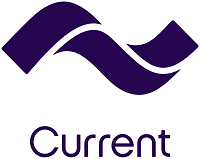Years ago, the idea of a debit rewards card was rare.
If you want cashback, you needed to use a credit card. The economics were better. Whenever you use a credit card at a store, it charges the store a fee to process that transaction. The fee starts at 30¢ + 2.9%. Credit cards can pass along 1%-2% cashback rewards from that fee structure.
Debit cards are usually much cheaper. The Durbin Amendment limits debit card fees to 21¢ + 0.05%!
As you can see, when you only charge twenty-one cents and then a fifth of a percent, there isn’t much there for rewards. So for years, to get cash back, you had to get a credit card. Debit cards don’t earn enough in fees.
Fortunately, some banks have figured out a way to get rewards. As the point of sale, you have to tell the scanner to process your transaction as a credit or signature transaction. It’s quirky but it just means your sale is processed on the credit card network and thus the higher fees. It stinks for the merchant but it’s better for you.
Now, there are a few cashback debit rewards accounts available so you get the best of both!
Table of Contents
1. Discover® Cashback Debit – up to $360 a year

I’ve always had a soft spot for Discover because it was one of the first credit cards I ever had. I used it so much that I memorized the number!
Nowadays, Discover has been one of the leaders in the debit rewards space because they offer an online checking account and a debit card that offers 1% cashback on all purchases, up to $3,000 a month. That’s $30 of cash back each month or $360 a year. This NOT a promotional offer, you get this standard. See website for details.
(see website for details)
The checking account itself is solid with no monthly fees and no minimum balance. You can also open a Discover® online savings account and earn a nice welcome bonus of $200.
Some other perks of the account:
- No monthly fees or minimum balance requirements
- Uses the Allpoint ATM network (60,000 free ATMs)
- Earn 1% cashback up to $3,000 in purchases/month
- Free online bill pay
- Free check reorders (not common)
- Free incoming wires (very rare)
- Member FDIC.
👉 Get 1% cashback from Discover Cashback Debit
2. Current

Current is an online checking account with a rewards debit card (banking services provided by Choice Financial Group) that offers up to 15x points at various stores. You can redeem those points for cash (100 points to $1) into your account.
Current’s basic banking services has no monthly fee but if you want to get premium services, it starts at $4.99 a month. You can add a debit card for your kids at $36 per year per child. The features of their teen banking services are quite robust, with the ability to set chores, limit where they can make purchases, plus automated allowance payments (they get a debit card that has almost all the features of your card).
Some other perks of the account:
- No minimum balance
- Free cash withdrawals
- Powerful suite of money management tools (for main account and teen checking accounts)
- Mobile check deposit
- Faster direct deposit (2 days earlier, Premium plan)
Our Current Bank review goes into greater detail about this bank.
👉 Get up to 15x cashback from Current
3. ACE Flare™ Account by Metabank
The ACE Flare Account by Metabank is a prepaid Visa debit card offered by Ace Cash Express and issued by MetaBank. MetaBank is FDIC insured (#30766).
The best benefit of the ACE Flare Account is that you can associate it with an ACE Flare Savings Account that pays up to 6.00% APY on balances under $2,000. It’s one of the rare cards that actually pays you a high level of interest, which is why we included it in the list of debit rewards accounts despite not paying any kind of cash back rewards. The interest from the savings account is more attractive because it doesn’t require you to spend money to earn it!
The account does have a monthly fee of $9.95 if you do not get a qualifying direct deposit, it’s only $5 if you get a direct deposit totaling $500 or more. There is no fee for a direct deposit.
If you want to learn more, we have a full review of the ACE Flare Account.
👉 Learn more about the ACE Flare Account
4. Radius Bank Rewards Checking

Radius Bank has a rewards checking account that offers 1% cashback on online and signature-based “credit” transactions with their debit card. We mentioned earlier that the Durbin Amendment limited the fees on a debit transaction, Radius Bank will give you the 1% if you get the card reader to do a “credit” transaction.
In addition to the cashback, the checking account offers a 0.75% APY on balances of $2,500 to $99,999.99 and 1.00% APY on balances over $100,000. While that’s nice, you shouldn’t be putting that much of your savings in a checking account! It should be invested or, at worst, into a certificate of deposit.
Radius Bank also offers free ATMs worldwide (they refund all other bank’s ATM fees) and doesn’t charge you to use another ATM. Our full review of Radius Bank has more information about the bank itself, it’s total offerings, and more.
👉 Learn more about Radius Bank
5. STASH

STASH is an investing app that has helped over 5 million people reach their financial goals. The main product is a micro-investing app that lets you invest starting with as little as $5.
One of the added products is their Stash online banking account and it offers some great perks, including a program known as Stock-Back® rewards1. With Stock-Back®, you receive rewards in the form of stock2. It’s called Stock-Back® because you get pieces of stock back when you make a purchase at a qualifying location. If you make a purchase at an eligible publicly-traded company, you get shares in that company. If you make a purchase at a private company, like a local coffee shop, you receive Stock-Back® in a diversified ETF. The base cashback will be either (A) a dollar amount equal to 0.125% of the Qualifying Purchase, or (B)a fixed dollar amount of $0.01 per Qualifying Purchase, whichever is greater, but there can be promotional periods where you can get up to 2%.
For example, if you buy a burrito at Chipotle, you can get 0.125% cashback on that purchase in the form of Chipotle stock into your STASH account.
The STASH banking account has no monthly balance fees, no maintenance fees, and no overdraft fee3. Since you have to have a Stash account, you will have to pay a Stash subscription fee, which starts at $3 per month.
Stash will even give you $5 to start – just deposit at least $5 into your Personal Portfolio to receive your bonus! (our full review of Stash goes into greater detail)
6. American Express Serve Cash Back
American Express Serve Cash Back is a prepaid debit account that gives you 1% cash back on purchases. If you can’t get a traditional debit card, a prepaid card is one that offers rewards but at a higher cost. The card has a $7.95 monthly fee (unless you live in NY, TX, or VT) with reload fees of up to $3.95 if reloaded at a retailer. It’s free to reload with a direct deposit or from another bank account. Prepaid cards are generally more expensive than a regular debit card but they’re for different customers.
Many prepaid card customers are folks looking to build credit, which is why paying extra is something unavoidable. If you have the option, it’s best to go with one of the other accounts on this list.
Are Debit Reward Cards Worth It?
Debit reward cards are rarely better than credit card rewards. Credit cards charge merchants a lot more than debit cards do so they can offer higher rewards.
The benefit of a debit card is that you will never go into debt. You are spending out of your checking account. For those who struggle with debt or refuse to go into any kind of debt, debit cards offer the best option available. It’s just unfair to compare debit cards to credit cards.
If you’re looking for a debit card that can help you teach your kids about money, I’d give Famzoo and Greenlight a look.
If you are going to use a debit card, one of the reward cards on this list will give you the best of both worlds. You get the convenience of using a card, some of the cashback rewards, but none of the risks you’ll fall into a debt cycle.
Paid non-client endorsement. See Apple App Store and Google Play reviews. View important disclosures.
Nothing in this material should be construed as an offer, recommendation, or solicitation to buy or sell any security. All investments are subject to risk and may lose value.
1 Stash Banking services provided by Stride Bank, N.A., Member FDIC. The Stash Stock-Back® Debit Mastercard® is issued by Stride Bank pursuant to license from Mastercard International. Mastercard and the circles design are registered trademarks of Mastercard International Incorporated. Any earned stock rewards will be held in your Stash Invest account. Investment products and services provided by Stash Investments LLC and are Not FDIC Insured, Not Bank Guaranteed, and May Lose Value.
2 All rewards earned through use of the Stash Stock-Back® Debit Mastercard® will be fulfilled by Stash Investments LLC and are subject to Terms and Conditions. You will bear the standard fees and expenses reflected in the pricing of the investments that you earn, plus fees for various ancillary services charged by Stash. In order to earn stock in the program, the Stash Stock-Back® Debit Mastercard must be used to make a qualifying purchase. Stock rewards that are paid to participating customers via the Stash Stock Back program, are Not FDIC Insured, Not Bank Guaranteed, and May Lose Value.3 For a complete list of fees please see the Deposit Account Agreement for details.
3 For a complete list of fees please see the Deposit Account Agreement for details.
*Offer is subject to T&Cs.** You must complete within the specific time period included in this offer: (i) successfully complete (or already have completed, or re-apply for and complete) the registration process of opening an individual taxable brokerage account (“Personal Portfolio”), (ii) link a funding source to your account; AND (iii) deposit at least $5 from your funding source into your Personal Portfolio. *T&Cs



